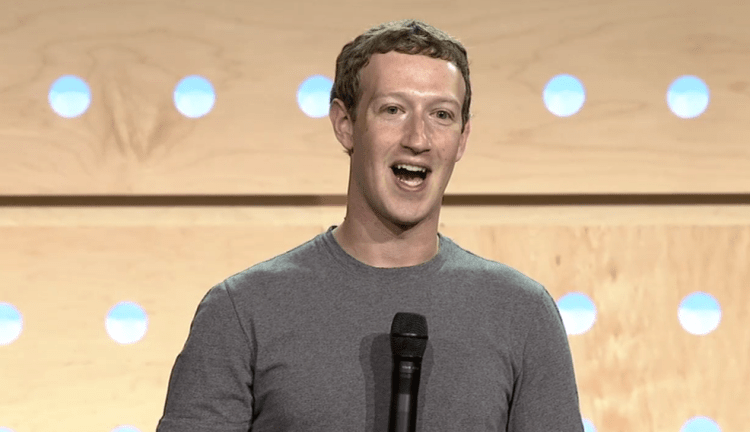Want smarter insights in your inbox? Sign up for our weekly newsletters to get only what matters to enterprise AI, data, and security leaders. Subscribe Now
With Twitter struggling for growth and focus, what better person to ask for advice than the head honcho of a rival social network that has emerged as one of the most valuable companies in the world?
While Jack Dorsey won’t be calling Mark Zuckerberg anytime soon, during a town hall Q&A in Berlin this afternoon, an audience member took up the task on his behalf, asking Zuck: “Considering the current state of Twitter, if you were its CEO, what would you do right now?”
It was the biggest sign yet that the questions at these Q&A events aren’t filtered or vetted in advance. And it was a question that caused more than a few awkward and nervous laughs from the Facebook CEO, but it garnered a series of whoops and cheers from the crowd.
“There is no right way for me to answer this question… um… ummm… let me say… I’ve no idea what to say to that,” Zuckerberg spluttered.
Zuck, somewhat understandably, didn’t answer the question head on… Instead, he did a good job of steering the conversation back toward Facebook, while still kinda sorta answering the question at hand. He said:
Let me answer that question by talking about what we’ve done with Instagram. Facebook traditionally has been a service that is mostly focused on more private communication, with friends, small groups. One of the things I think other networks — such as Twitter or YouTube — have traditionally done more on is on public content.
Recently, with Instagram, and Facebook as well, we’ve realized that that’s an area (public content) in the community we’re building. People want to keep in touch with the athletes that they care about, the celebrities, the actors, the political and civil leaders. Giving people tools to be able to share who they care about, and follow those things, I think it has contributed to a large degree in the growth of Instagram. And I think it has historically to the growth of Twitter too.
But it’s certainly an area we’re seeing with Instagram, people follow the public figures that they care about. Instagram joined us when that community was 20 million people. And the team that worked on Instagram at the time was 14 people. At the time everyone was like ‘You bought that for a billion dollars, you’re crazy’. Since then, we’ve helped to build the team up, ten times bigger now — 150 of the best people at Facebook are working on Instagram, and the community has grown from 20 million people to more than 400 million people. It’s bigger than Twitter.
I think a lot of that is because we’ve executed the roadmap that I’m talking about in terms of giving people — public figures — the ability to produce great raw content of what’s going on in their lives and giving people the ability to connect with that.
Zuck’s initial tactic was to draw a dividing line between his company and Twitter by noting that they have traditionally been two different things. But with the $1 billion acquisition of Instagram almost four years ago, and also more recent moves that Facebook itself has been making, some parallels can be drawn between Facebook and Twitter.
To conclude his answer, Zuckerberg pointed to the new Facebook live video-streaming feature, which expanded to Android and landed in more than 30 new countries today, as another way that his company is looking to connect people on a public forum.
‘Live’ is going to be an awesome thing for public figures… imagine your favorite public figure or politician having the power to broadcast from their pocket, go live, have an audience of thousands of people. There’s a lot more that needs to be done to give people the ability to connect with the people and figures they’re interested in. I think you’re going to see a lot of that on Instagram and Facebook, and if the Twitter folks do a good job, I think you’ll see a lot more of that on Twitter too.”
So it’s probably not the answer people were looking for, but reading between the lines of Zuck’s response, it sounds like he’s saying that Twitter needs to do a better job of connecting its millions of users with the public figures they choose to follow.
Certainly, Twitter is making some moves in that direction by integrating its live video-streaming service, Periscope, into the core Twitter app, but Twitter’s problem extends beyond that — which is why it will soon launch a tool to expand tweets beyond 140 characters. Despite opposition to that move, removing Twitter’s core defining feature might ultimately make it easier for public figures to communicate with their followers.



